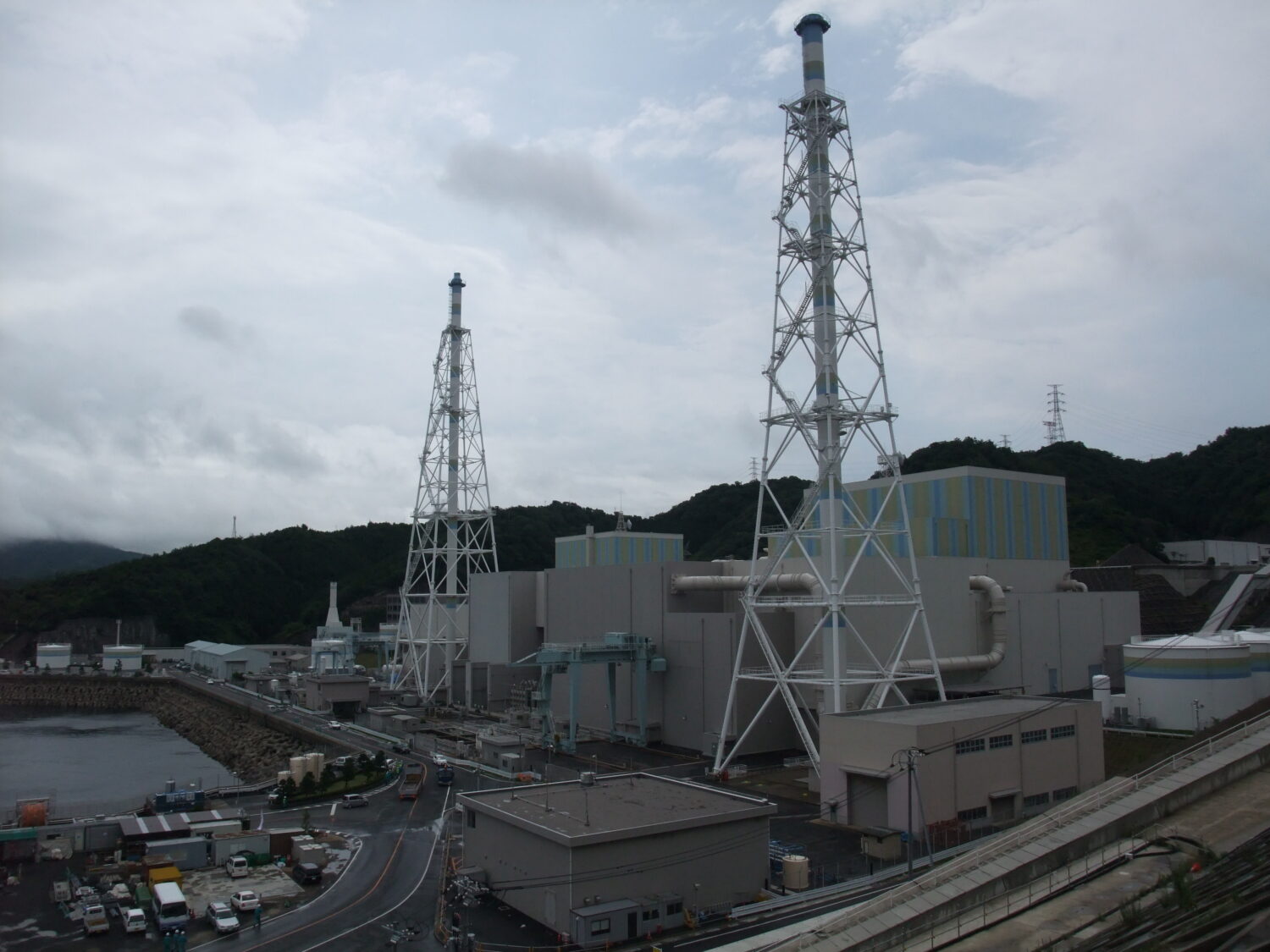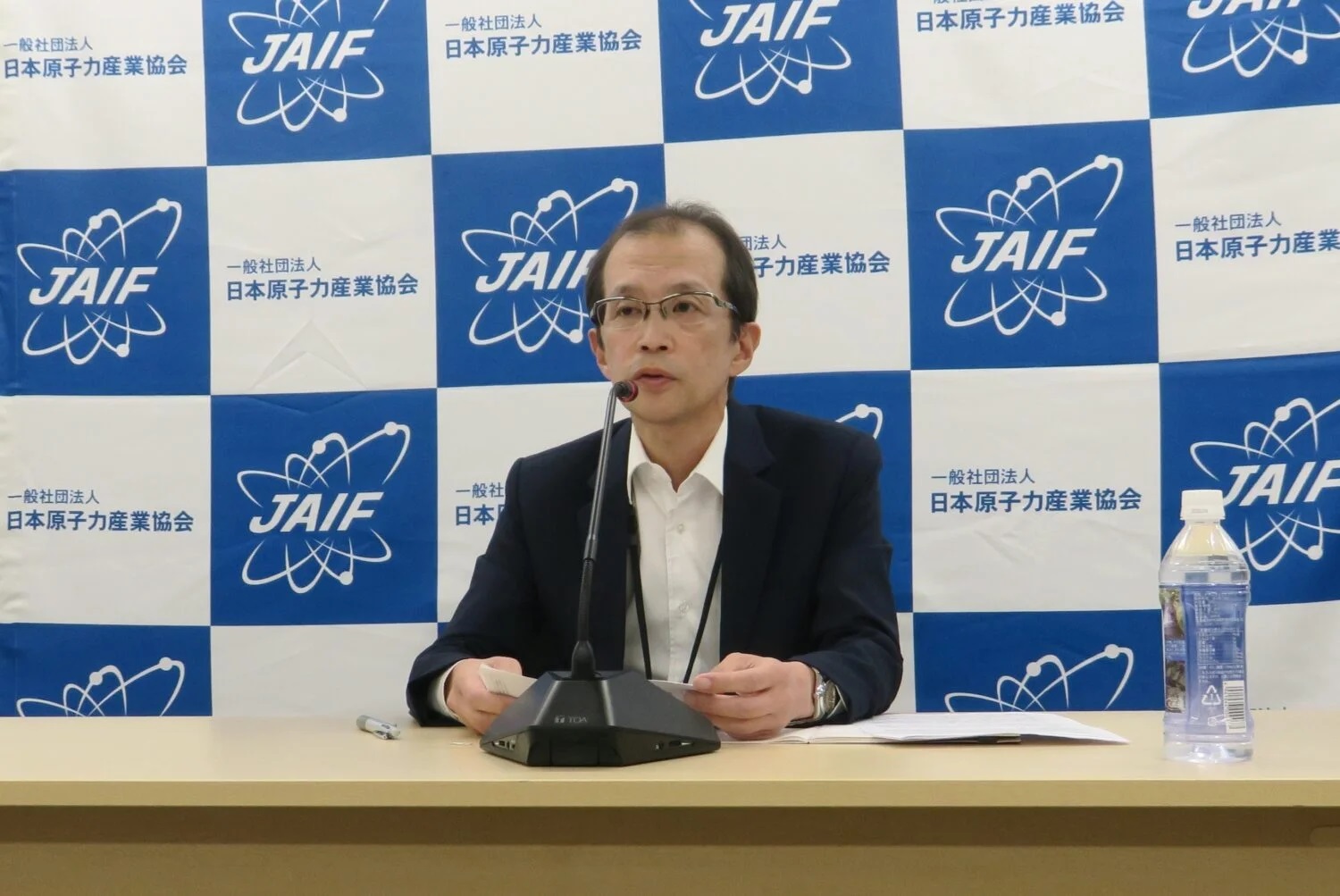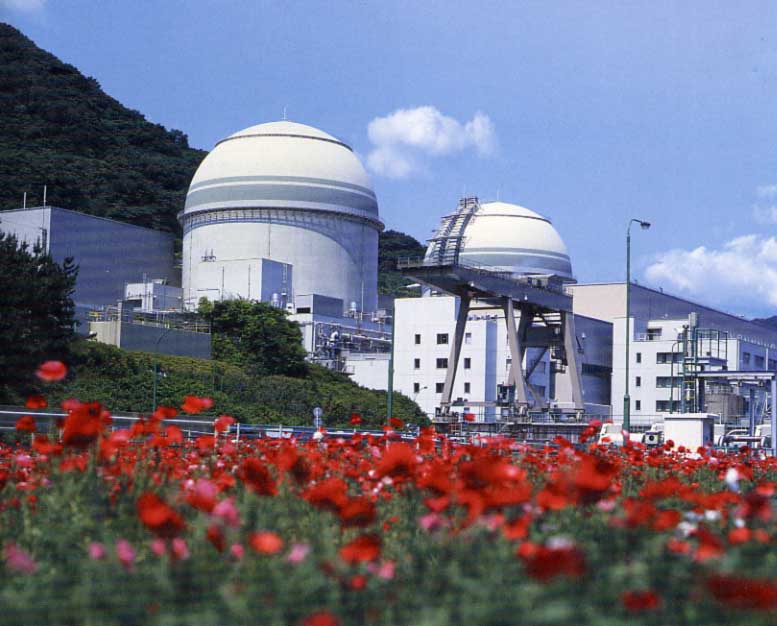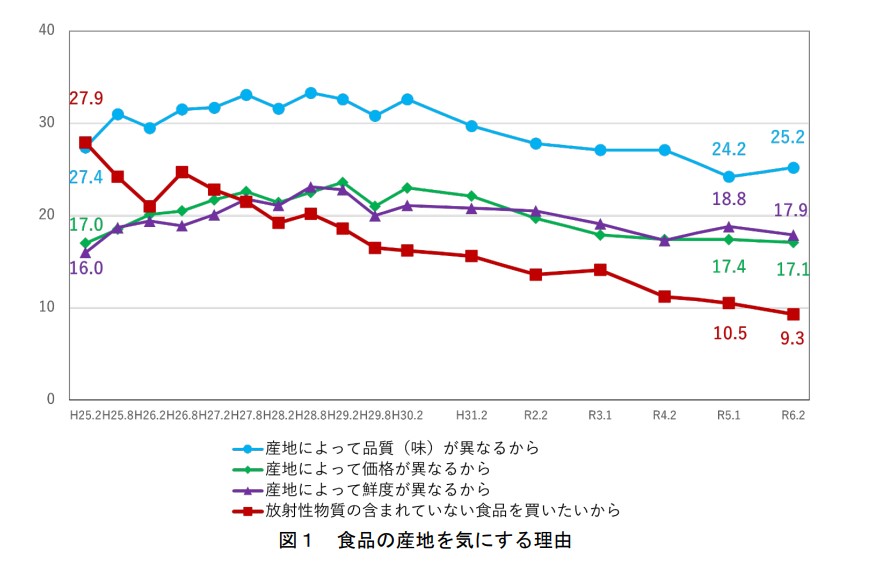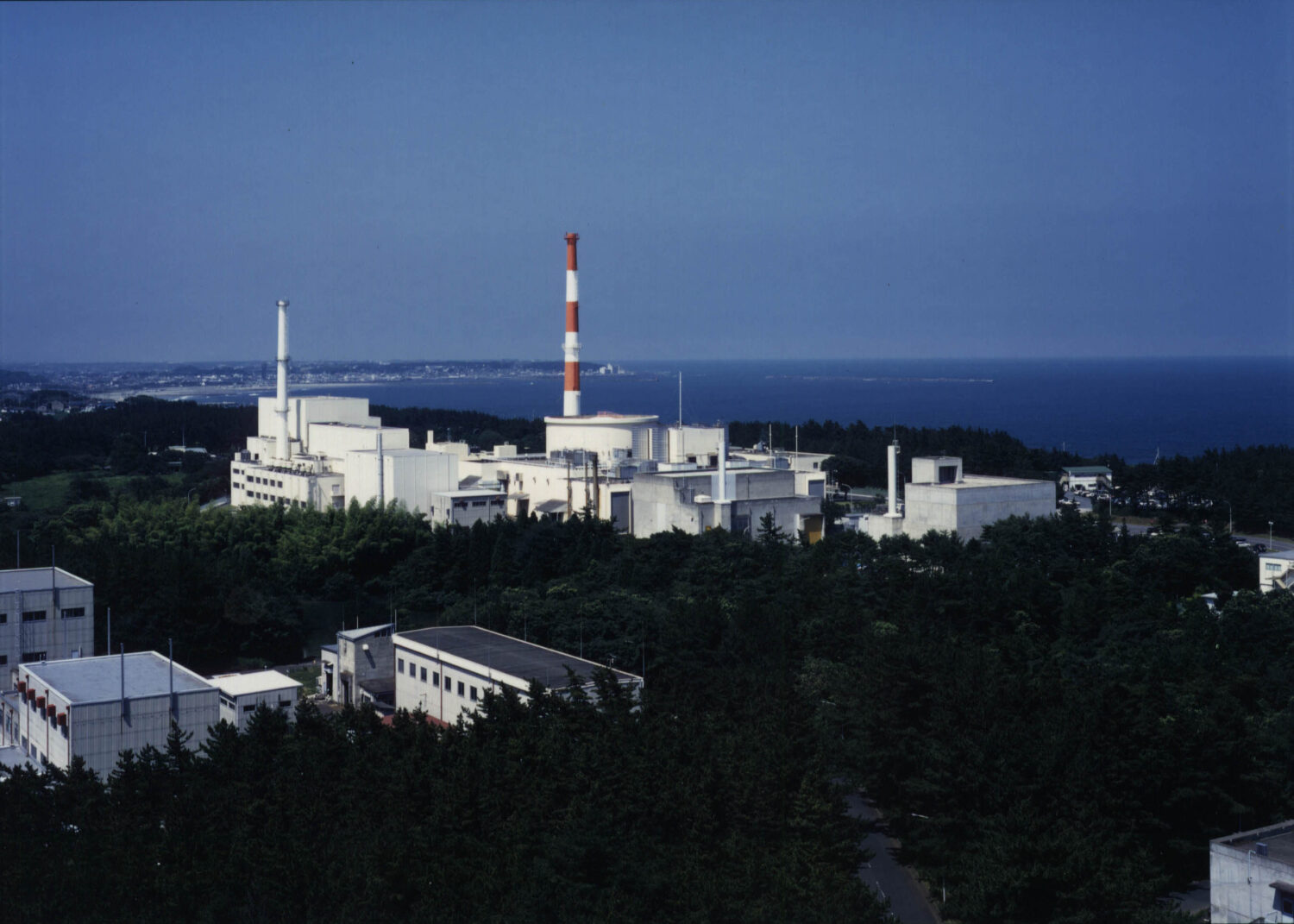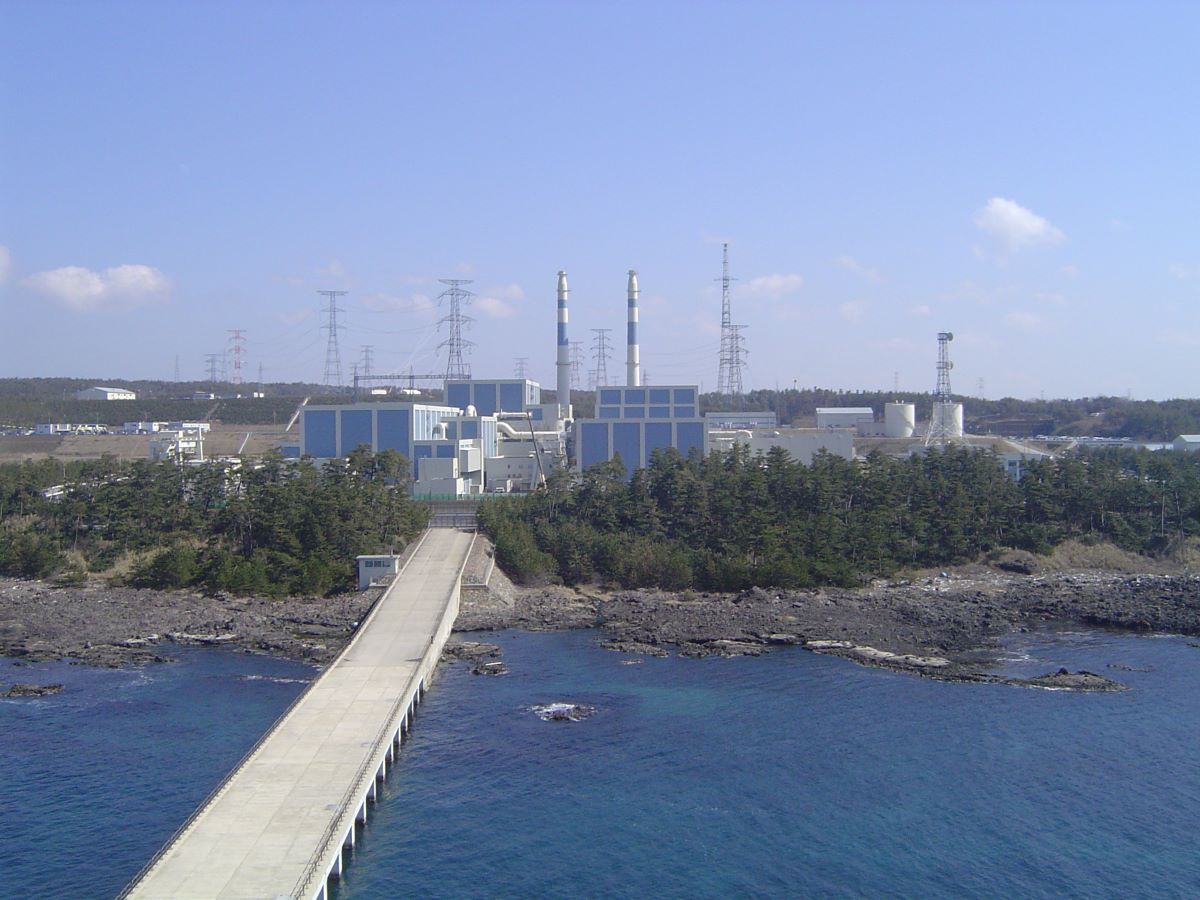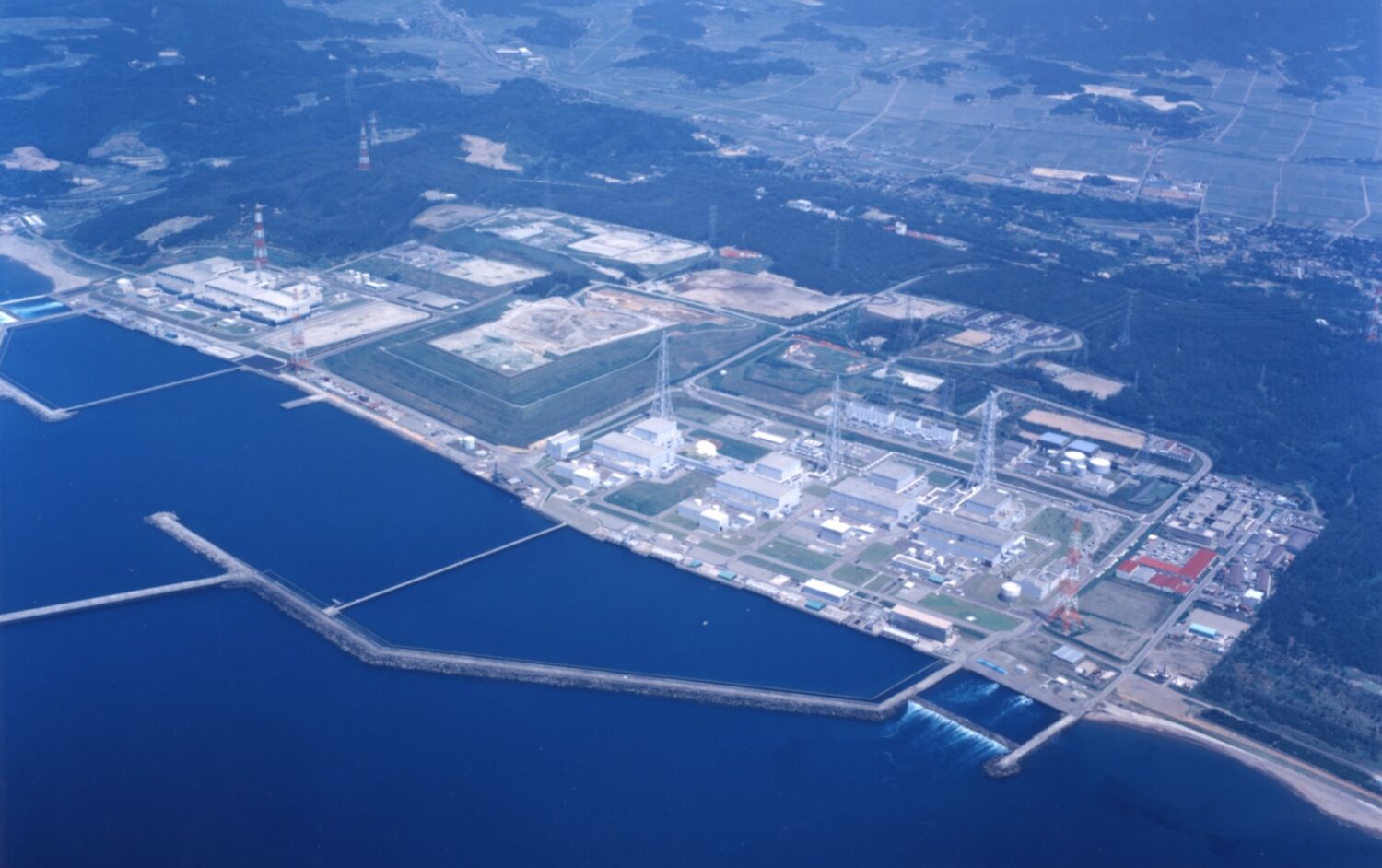The move was made in response to a statement by the Nuclear Regulation Authority (NRA) (refer to the Atoms in Japan article of April 24), saying that it would suspend the NPPs’ operation if such facilities—the work on which has fallen behind schedule—are not completed by the respective deadlines.
In reference to the NRA’s rejection of a request to extend the deadlines for construction of such facilities, Katsuno said at a press conference that the power companies had “insufficiently” communicated the details of their respective construction periods of the anti-terrorism facilities with the NRA, but would now endeavor to complete them “as soon as possible, to the best of their ability, to minimize the suspension periods or—if possible—avoid them altogether.”
Adding that the power companies would cooperate with each other whenever and wherever they could, Katsuno mentioned, “We haven’t discussed anything specific yet; that will be our task from now on.”
The installation of anti-terrorism facilities is required under the NRA’s new regulatory standards, with the deadline being “five years from the time that each construction plan is approved.” However, three of the utilities—namely, the Kansai Electric Power Co. (Kansai EP), the Shikoku Electric Power Co. and the Kyushu Electric Power Co.—had pointed out that they expected an additional twelve to thirty months to be needed beyond that limit for the facilities at ten of their NPPs.
On May 16, Kyushu Electric submitted the construction plan for anti-terrorism facilities for its Genkai-3 (PWR, 1180MWe). That unit has been restarted, with the deadline for completing such facilities coming in August 2022.
Although the company had said that it would be difficult to complete the construction before the deadline, it suddenly submitted a portion of the plan to the NRA, hoping to meet the deadline by successively starting work on each separate item one by one once it receives the individual approval for it.


.jpg)
